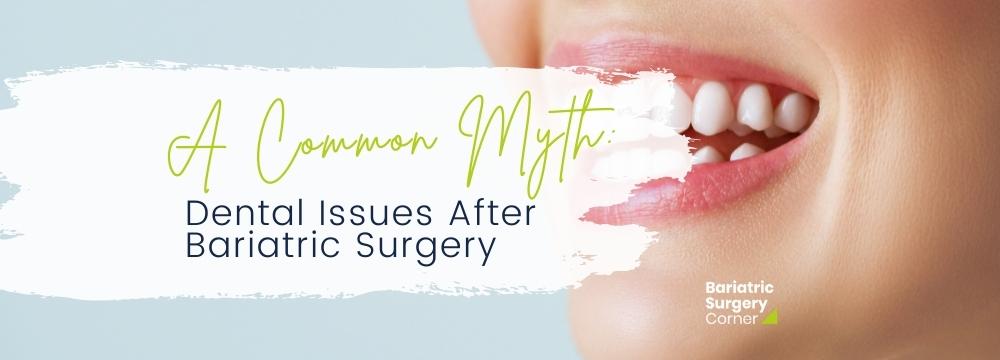
Bariatric surgeons have heard it all, and many patients are concerned about dental issues after their bariatric procedure. You may see reports on the Internet about teeth falling out and other wild stories on the dental consequences of surgery. But do they hold any water? The answer is a resounding no. However, patients must understand that their habits before and after bariatric surgery can make a big difference in the health of their teeth and mouth.
Where Your Dental Health Can Suffer
First, whether you’ve had bariatric surgery or not, your oral hygiene routine is paramount to the health of your teeth. For example, patients who experience chronic gingivitis or periodontal disease are much more likely to experience decay, looseness in the teeth, and may even have their teeth fall out. If you ate lots of sugary foods while neglecting your teeth before surgery, the problems associated with those lifestyle choices can sometimes materialize in the postoperative process – purely by coincidence. Ultimately, it is essential that you see your dentist at least once every six months for a complete cleaning and evaluation, as well as practicing good oral hygiene, which includes minimizing high sugar and highly acidic foods, brushing twice a day, flossing daily, and using other tools such as water flossers or intra-dental devices if your dentist recommends them. You may also wish to consider inquiring about a mouthguard to reduce nighttime grinding or clenching if you’re prone to that.
Patients can also get into trouble if they do not follow their proper vitamin and mineral supplementation regimen after undergoing weight loss surgery. Vitamins and minerals, especially calcium and vitamin D, are essential to bone and tooth health. If you are not following the appropriate supplementation schedule, there is a good chance that you may begin to suffer from weak teeth that can be prone to breakage or other problems. Compliance with your postoperative supplementation regimen is an easy, but critically important, way to keep your body and mouth healthy.
If you prioritize a healthy oral care regimen and follow your postop instructions, you should have no problems with your teeth. Of course, if you experience any issues with your oral health, a visit to your dentist or a specialist should be scheduled as soon as possible to address it before it becomes a bigger problem.
Morgan’s Story
As an interesting aside, some changes will happen to your body after bariatric surgery that are entirely unexpected, and you may be unable to find answers to those questions in your postoperative packet. For example, one of our Bariatric Surgery Corner contributors, Morgan, talks about how she felt like her teeth looked far too big in the months after bariatric surgery. It was so jarring that she considered going to her dentist and talking about shaving them down. Of course, her teeth were normal, and it was just a matter of getting used to her new body and proportions.
Much of what happens to us after bariatric surgery is new. Whether positive or negative, these changes can throw us off. This reality highlights the need for a comprehensive support team through friends, family, your practice, and other patients you may have met in support groups or online. Navigating these challenges can be difficult but having others by your side to give you some perspective when necessary is an integral part of success after surgery.









